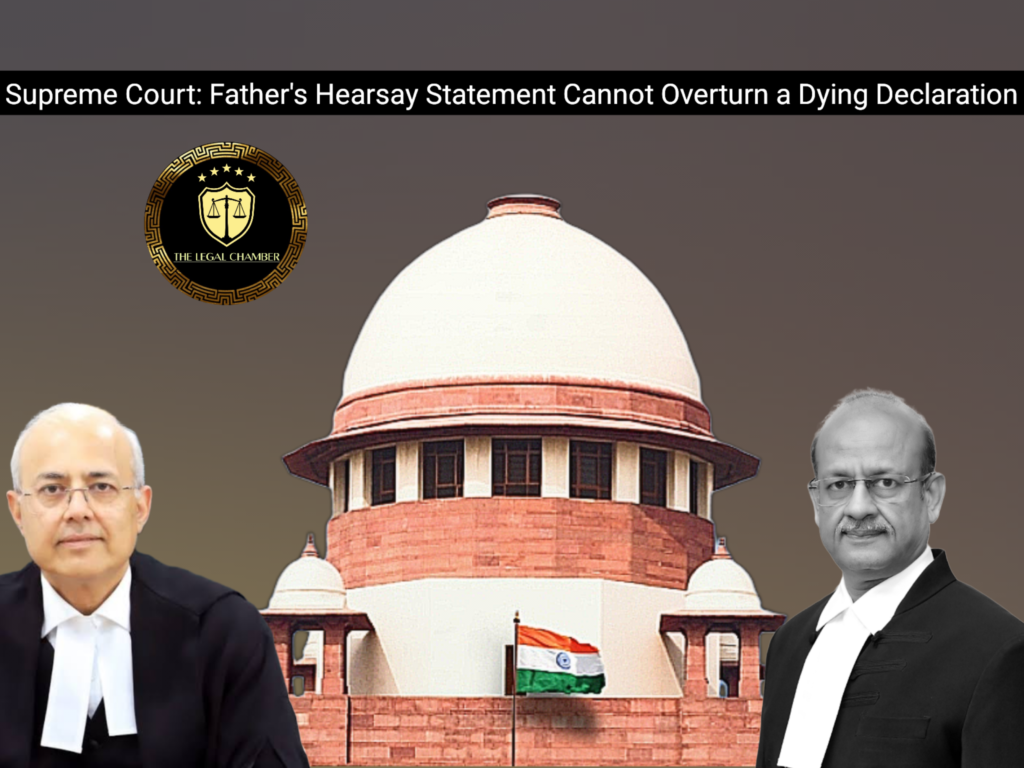
Facts Of The Case:
The case originated from an incident on June 14, 2005, in which a woman sustained fatal burn injuries in a fire at her marital home. Her husband (Appellant 1) and another accused (Appellant 2) were charged under Sections 498A (cruelty) and 306 (abetment of suicide) of the Indian Penal Code. The prosecution alleged that the appellants harassed the deceased and that the fire was a result of a deliberate act. The core of the prosecution’s case was a dying declaration, in which the deceased stated the fire was an accident caused by an unclosed gas regulator the previous night, which led to a leak and a blaze when the stove was lit in the morning. The Trial Court, after appreciating the evidence, acquitted the accused, finding the prosecution failed to prove its case. However, the Madras High Court, in a revision petition filed by the complainant (the deceased’s father), set aside the acquittal. The High Court held that the Trial Court erred by not properly considering the dying declaration and remanded the case for fresh consideration. This order of the High Court was challenged before the Supreme Court by the acquitted accused.
Procedural History:
The procedural history of this case began with the acquittal of the accused appellants by the Trial Court (Additional Sessions Judge, Periyakulam) on March 11, 2008. Aggrieved by this acquittal, the complainant (the deceased’s father) filed a criminal revision petition (Crl. R.C.(MD) No. 463 of 2008) before the Madurai Bench of the Madras High Court. The High Court, in an order dated October 31, 2018, allowed the revision, set aside the acquittal, and remanded the matter back to the Trial Court for fresh consideration. The accused appellants then challenged this High Court order by filing a criminal appeal in the Supreme Court of India. The Supreme Court, in its judgment dated August 12, 2025, allowed the appeal, set aside the impugned High Court order, and consequently restored the Trial Court’s original order of acquittal.
READ ALSO:Supreme Court Ruling: Port Tariffs Must Be Set By Experts, Not Arbitrators
Court Observation:
Final Decision & Judgement:
The Supreme Court allowed the criminal appeal, setting aside the impugned order of the High Court. The final decision restored the Trial Court’s original judgment of acquittal dated March 11, 2008, thereby upholding the appellants’ acquittal of all charges under Sections 498A and 306 of the Indian Penal Code. The Court held that the High Court had erroneously re-appreciated the evidence in exercise of its revisional jurisdiction, for which there was no legal basis as the dying declaration clearly pointed to an accidental death. The appellants were discharged from the liability of the accusations, and all pending applications, if any, were disposed of.
Case Details:
Case Title: KHAJA MOHAIDEEN & ANR. vs. THE STATE OF TAMIL NADU & ANR. Citation: 2025 INSC 970 Criminal Appeal No: Criminal Appeal No. 3152 of 2025 Date of Judgement: August 12, 2025 Judges/Justice Name: Justice Rajesh Bindal and Justice Manmohan
Download The Judgement Here